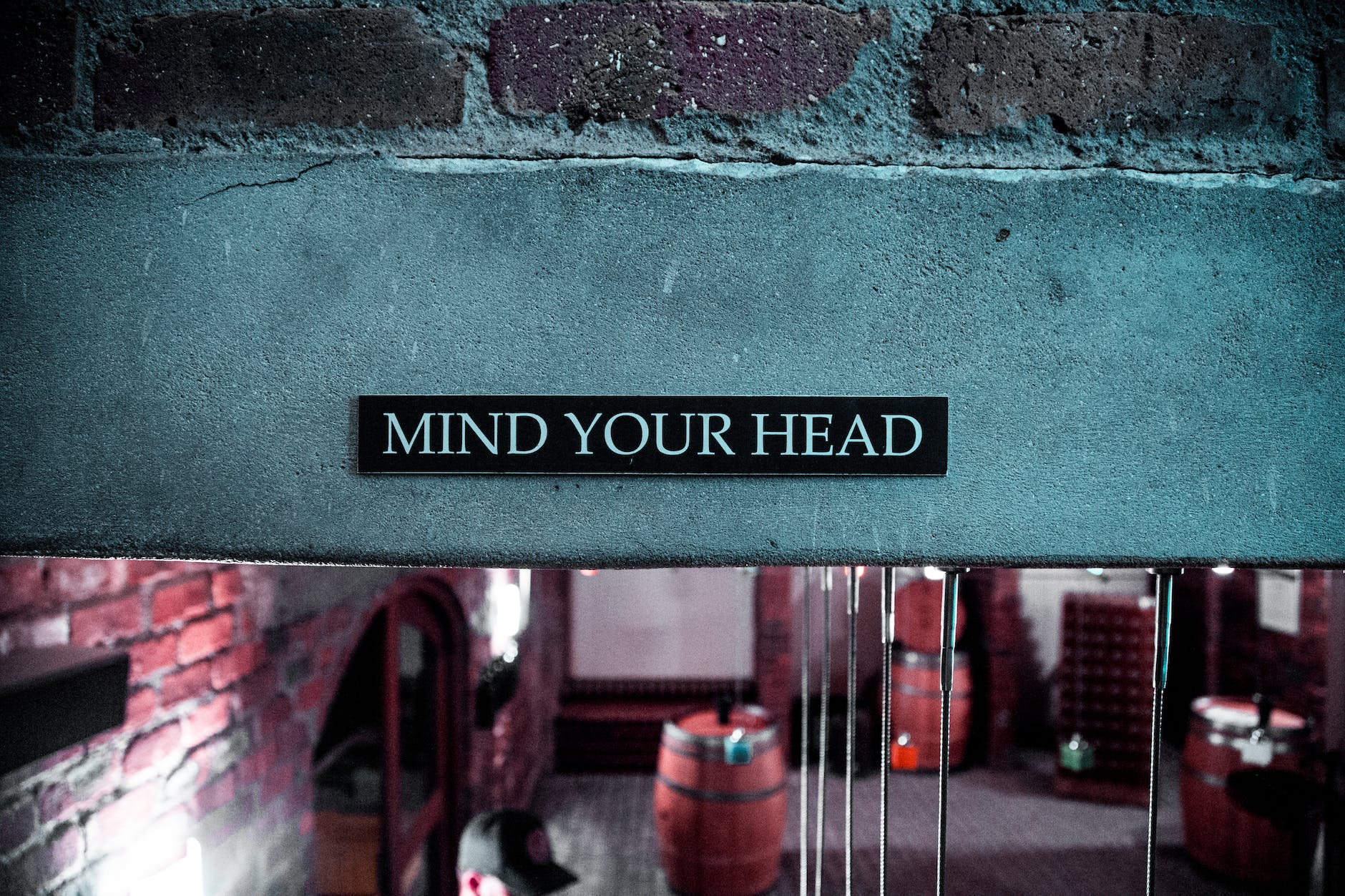A Question in Your Head: What Could Possibly Be Wrong With Me?

Before diving in, please note: This post is for informational purposes only. If you’d like to know more about how we approach topics, feel free to check out our friendly Disclaimer Page.
Hey there, amazing readers! 🖐️ Just a quick note: yes, we know there are a lot of ads here. Trust us, we get it—it’s not the prettiest look, but they help us keep this blog alive and kicking. Those pesky little ads cover the costs of all the behind-the-scenes magic, from hosting and tech stuff to creating content we hope you’ll love.
We’re committed to delivering quality posts, and your support (even just sticking around despite the ads) means everything to us. So, bear with us, and thanks for helping us keep the good vibes rolling. Now, on to the fun stuff! 😉
TRANSLATE BUTTON AT THE END OF THE ARTICLE
How often do you find yourself asking yourself, “What’s wrong with me?” Nearly everyone is able to cite evidence that supports this conclusion.
Whether it be via destroying relationships, having accidents, experiencing emotions that are out of control, making choices that are harmful to oneself or others, or just being unable to achieve one’s health and financial objectives,
Maybe you’ve come to the conclusion that you weren’t given the best start in life because you weren’t born into the ideal family, under the ideal astrological sign, or with the ideal genetic makeup.
You are neither unique nor an outlier.
You could go from asking yourself, “What really is wrong with me?” to coming to the conclusion that something must be wrong with you.
What’s worse is that you could have mistakenly come to the conclusion that there isn’t anything you can do about it.
Why Do You Ask “What’s Wrong With Me” to Yourself?
Everyone is carrying around a heavy burden of problems from their past.
Everyone has been through the experience of loss and, almost always, of suffering and tragedy.
That may be a typical occurrence, but allow me to explain how it has an impact on you.
Every experience in your life causes the formation of a memory, which always contains your thoughts and feelings about the occurrences.
These recollections, in turn, function in your subconscious mind like programs, and they have the ability to influence both the present and the future.
You are constantly transmitting the programs running in your subconscious into the matrix or field in which we exist, and the matrix or field then reflects the results back to you in some manner.
This is the reason why the majority of your troubles keep occurring over and over again throughout your lifetime.
Let’s imagine that the way you were handled many years ago left you with emotional scars, including trauma and wounds of emotional disappointment.
Simply thinking about the occurrences might throw you into an emotional whirl and lead you to the conclusion that you will never be able to get beyond the trauma.
What Two Different Teachers of Spirituality Suggest
I’ve been a witness to two people sharing their profound emotional anguish with two distinct and prominent spiritual instructors.
Both times, the teachers were moved to tears.
I was amazed by the replies that these professors delivered to these individuals.
A teacher counseled a student who was sobbing uncontrollably that she should disregard the situation and not give herself permission to think about it.
At a different gathering, a second spiritual teacher provided an answer that was just as pointless to one of the attendees.
He advised me to “just be patient.” How would you have felt if someone had responded to your heartbreaking feelings by saying anything like that after you had emptied out your whole being to them?
It’s likely that you’d come to the conclusion that you truly are a shambles and that there is something gravely wrong with you.
The Straightforward Answer
Thankfully, I am more experienced now.
There are responses and ways forward that might provide you solace from your past.
In fact, problems and their solutions have been the primary focus of my work throughout my life, and as a result, I am familiar with what approaches are successful and the steps necessary to implement them.
To begin, I want you to understand that there is nothing wrong with you, regardless of your state or the situation in which you find yourself.
It’s possible that you’re going through some tough times, but jumping to the conclusion that there must be something wrong with you is a mistake.
A more effective strategy would be to ask oneself what, in fact, took place.
That is objective; it provides specifics; and it creates the groundwork for taking action in response to the issue.
For illustration’s sake, let’s pretend you were in a relationship that you believed to be incredibly significant but that ended.
It’s possible that you were the one who ended the relationship, or that you decided to do so on your own since you realized it wasn’t what you needed.
In either scenario, you may have experienced a significant blow to your sense of self-worth and reached the conclusion that you are simply unable to make a relationship work.
As a result, you may have responded to the question “What’s wrong with me?” by asserting that there is most certainly something wrong with you.
You may start to feel that your efforts are pointless and get melancholy as a result of this.
The fallacy that something must be wrong with you is at the heart of the question you pose to yourself, “What’s wrong with me?”
In the event of a failed relationship, you have the option of drawing the conclusion that you are incapable of making a relationship work, or you have the alternative option of drawing the conclusion that the failed relationship served important purposes in your development, allowing you to enter into a relationship that is much more healthy, strong, and stable in the future.
Therefore, the response to the question of “what’s wrong with me?” is that there isn’t anything wrong with you but rather that you are responding to life based on inaccurate assumptions about the suffering and loss that you have encountered.
Your Reasoning Behind These Conclusions
Beliefs appear to be absolute.
When you believe something, you are essentially coming to the conclusion that it is a fact.
In point of fact, that is not the situation.
Beliefs may be facts, but more frequently than not, they are opinions and judgments based on what you perceive to be true at the moment they are formed.
You have probably altered the majority of what you thought during the course of your life, and in many instances, you may have entirely abandoned a prior concept that you once held.
The majority of beliefs are developed as a result of what an individual continually tells themselves about a certain topic.
It’s quite possible that a significant portion of that is based on something that someone else told you, and because you felt it made sense, you repeated it as if it were your own view.
In order to stop the cycle, you will need to question the validity of your findings and the truth of your ideas.
What you should do is as follows:
1.
Begin by first providing oneself with an impartial description of what truly took place.
Write it down, but keep it to a minimum.
2.
Describe how it made you feel, including the ideas that are making you feel horrible about yourself, and then go on to the third question.
3.
In the third step, consider what you would have to accept as truth in order to have a more upbeat outlook on the recent happenings.
You need to realize that the things you tell yourself over and over again eventually get internalized as beliefs.
The mind is led to believe that something is true when, in reality, it is just drawing a conclusion based on the information and impressions that are now available.
Because the human mind has this inclination, you may make use of it to your advantage by repeating what you would need to think in order to feel happy about your situation.
You may tell yourself something like, “I am entire, whole, and happy, and that is the basis for a fantastic relationship,” if you’ve recently been in a relationship that hasn’t lived up to your expectations.
This demonstrates that you have a healthy and optimistic confidence in yourself, which is founded on your true self.
It is without a doubt a great deal more true than believing that you are a flawed loser who is afflicted with anything that is wrong with you.
The negative comment that you have been thinking about may be turned around and used as a springboard for creating a good one.
To put it another way, what would be the optimistic counterargument to what it is that you have been telling yourself?
After that, repeat the sentence to yourself until it becomes firmly ingrained in your subconscious mind and utilize it as your mantra.
Because the majority of the programming in your subconscious mind was done by you repeating negative thoughts, you may utilize repetition to set up a positive foundation of beliefs by replacing the negative ones with good ones.
More information on how to make use of affirmations can be found at this link: Positive Affirmations.

The Enlightenment Journey is a remarkable collection of writings authored by a distinguished group of experts in the fields of spirituality, new age, and esoteric knowledge.
This anthology features a diverse assembly of well-experienced authors who bring their profound insights and credible perspectives to the forefront.
Each contributor possesses a wealth of knowledge and wisdom, making them authorities in their respective domains.
Together, they offer readers a transformative journey into the realms of spiritual growth, self-discovery, and esoteric enlightenment.
The Enlightenment Journey is a testament to the collective expertise of these luminaries, providing readers with a rich tapestry of ideas and information to illuminate their spiritual path.
Our Diverse Expertise 🌟
While our primary focus is on spirituality and esotericism, we are equally passionate about exploring a wide range of other topics and niches 🌍📚. Our experienced team is dedicated to delivering high-quality, informative content across various subjects ✨.
To ensure we provide the most accurate and valuable insights, we collaborate with trusted experts in their respective domains 🧑🏫👩🏫. This allows us to offer well-rounded perspectives and knowledge to our readers.
Our blog originally focused on spirituality and metaphysics, but we’ve since expanded to cover a wide range of niches. Don’t worry—we continue to publish a lot of articles on spirituality! Frequently visit our blog to explore our diverse content and stay tuned for more insightful reads.






